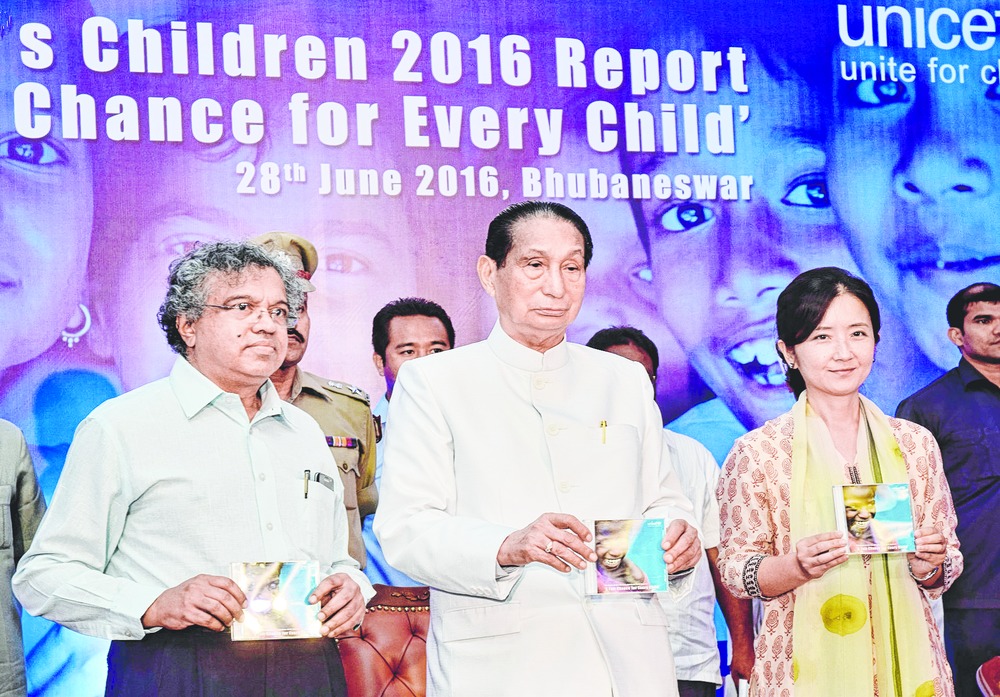
Bhubaneswar, June 28: The annual flagship report of the United Nations International Children's Emergency Fund (Unicef) shows that significant progress has been made in the past in saving children's lives, getting them into school and lifting people out of poverty - but it is neither even nor fair.
The report "The State of the World's Children 2016", which governor S.C. Jamir formally released today, focuses attention on the issue of "Equity: A Fair Chance for Every Child".
It stresses on the fact that investing in the most disadvantaged children is not only morally right, but also economically sound and a strategic decision that can yield immediate and long-term benefits. Cash transfers, for example, have been shown to help children stay longer in school and advance to higher levels of education.
On an average, each additional year of education a child receives increases his or her adult earnings by about 10 per cent. The survey states that for each additional year of schooling completed by young adults, the country's poverty rates fall by 9 per cent.
"We have a collective responsibility to accelerate the progress for the most disadvantaged and vulnerable children. It requires identifying the most vulnerable and working together to tackle the multiple deprivations across sectors. We have a choice - invest in these children now or allow our world to become still more unequal and divided," said Unicef chief (Odisha) Yumi Bae.
Quality education has the power to improve the lives of children and the societies. However, there has been little progress in expanding access and improving quality. The number of children, who do not attend school, has increased, and a significant proportion of those, who do go to school, are not learning, the report said.
In the state, close to four lakh students continue to be out of school, while almost two in five, who do finish primary school, have not learned how to read, write or do simple arithmetic.
The state government has come up with schemes such as the Pravesh Utsav and the school beautification programmes in order to address this issue.
"While the Pravesh Utsav is targeted to increase the enrolment by making it a celebration time for first graders, the school beautification programme aims to retain the students by making them good in infrastructure and on a par with private institutes. We will be giving out school kits, including bags, books and stationery, from this year," said Odisha Primary Education Programme Authority director Mahendra Mallick.
Better data on the most vulnerable children, solutions to the challenges children face, innovative ways to address old problems, more equitable investment and increased involvement by communities are some measures that can help level the playing field for children, the report stated.











